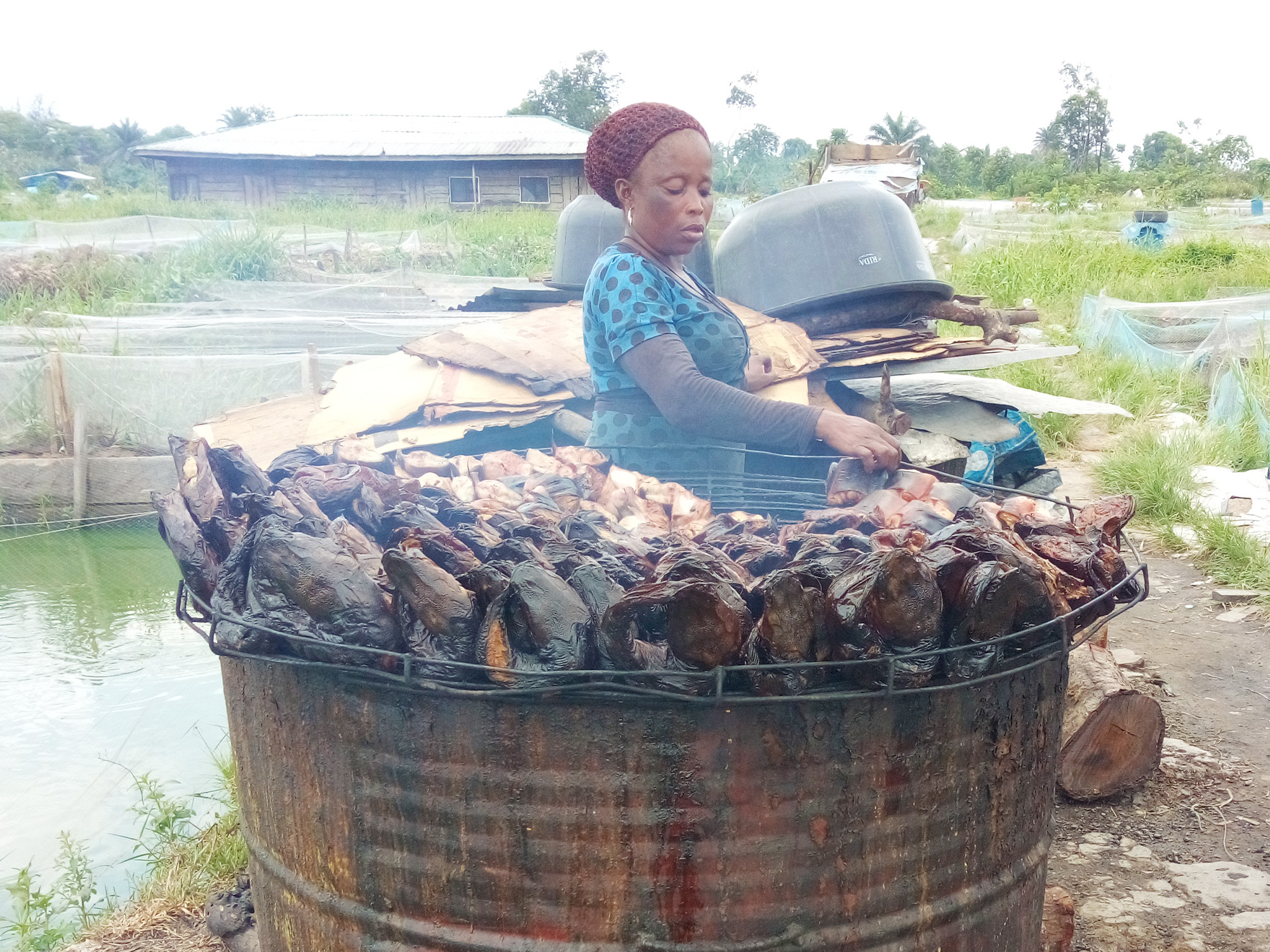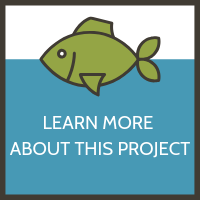
By Alaina Dismukes
The Nourishing Nations team went on a tour of Delta State, Nigeria, in April 2021 to gather information on the area and further develop the project’s research protocols to meet the study objectives.
The Feed the Future Innovation Lab for Fish project is working toward improving the quality and safety of processed fish products in Nigeria through implementing trainings and materials for local fish processors.
The study areas, such as towns and markets, are based on the areas with the most bodies of water and have fishing and processing activity.
“An added area of interest for the project will be that of advocacy for the fish processors to create an organized structure in the form of cooperative societies, just like their counterparts in the production sector (aquaculture),” said Joseph Nuntah, a postdoctoral researcher for the Pesticide Research Laboratory at the University of Benin in Nigeria and the Nourishing Nations project coordinator. “This will enable the fish processors to collectively interact with the government and other agencies to bring about improvement in the sector, especially in the provision of modern processing and packaging facilities.
“Additionally, the cooperative societies will be able to organize training to ensure improved processed fish products quality and safety.”
Talking with fish processors was an important part of the Delta State tour.
“The conversation with fish processors showed that they operate at individual levels,” Nuntah said. “Oftentimes, it is a family business that involves the female processors with the children assisting, and the fish processing activities were mostly carried out using the traditional or improved traditional processing kilns while packaging and storage often utilize baskets in the kitchens or smokehouses.”
Although processors are aware of modern processing methods using furnaces or ovens, which can improve the quality and safety of fish products as well as limit risks, they are constrained with insufficient funds to acquire the equipment.
“Unlike in the production sector, there are no fixed unit of sales for the processed fish products,” he said. “The prices of processed fish products are mostly influenced by seasonal availability, catches, production, and transportation costs.”
The director of the fisheries department at the Delta Agricultural and Rural Development Authority (DARDA), Charles Mordi, provided the team with insights on the activities of fish processing, distribution, and marketing in Delta State. Mordi pointed out that the sector is dominated by women (over 90% of participants in these activities) compared to men that mostly engage in the production aspect.
“Since women’s activity has been seen as largely in the sale of fish and fish products in the markets, the project is working to reach women to provide them with information on processing fish,” Nuntah said.
“It is expected that the train-the-trainer program for the fish processors, in collaboration with the major policy stakeholders in the agricultural sector in Delta State, will help broadcast the findings and recommendations of this project to a wider range of fish processors across the state.”
The next phase in the project is a stakeholder meeting scheduled for the first week of August 2021. The meeting will involve the Nourishing Nations team; DARDA; the Department of Planning, Research, and Statistics in the Ministry of Agriculture and Natural Resources; the Delta State nutrition officer in the Ministry of Health; and representatives of fish processors in each of the three senatorial districts of Delta State.
“The outcome of the stakeholders meeting is expected to aid our team in planning the necessary steps to achieve successful training sessions for the fish processors,” Nuntah said. “The training is scheduled to begin the second week of August.”
Published July 16, 2021

